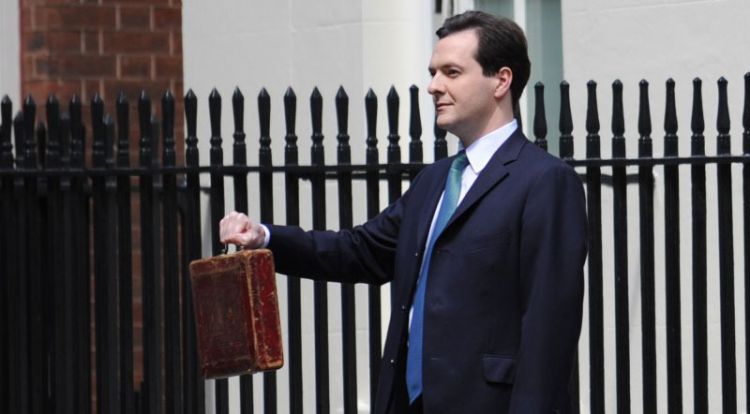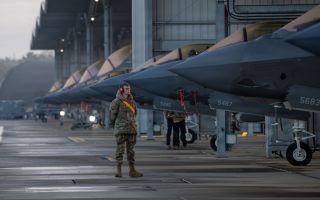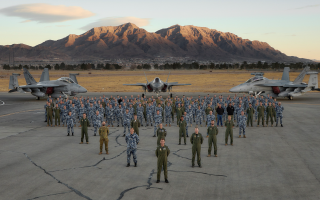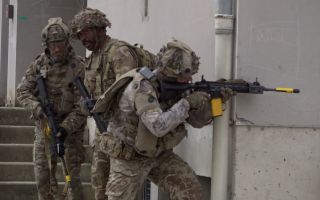
Tri-Service
Cyber Warfare: How The UK Could Come To A Halt In Three Days

The Chancellor George Osborne is putting an extra £1.9 billion a year into the Government Communications Headquarters (GCHQ). The money is to fight Islamic State (IS) hackers. This is something that has never been so publicly obvious.
Five years ago, during the last Strategic Defence and Security Review, the issue of cyber security was present but not pressing.
On Monday, when the new review is published, it will feature alongside the top-line subjects: nuclear deterrence, naval force projection, special forces enlargement and recruiting.
More from Forces TV: 10 Ways To Stay Safe Online In The Forces
This interest has nothing to do with international whistle-blowing of secrets from Washington and GCHQ, nor hacking into mobile telephone accounts.
The original sensitivity was concerns about Chinese and Russians hacking into British military systems, and even disabling them. Today the reasoning is straightforward warfare against IS.
The UK government has to assume that we are close to a point when a group of IS hackers could effectively bring the British Isles to a standstill of essential services.
Hackers have demonstrated that in spite of the brilliance of the UK's counter-cyber systems, a 15-year-old can get into supposedly secure systems because he or she has expertise to challenge IT security, rather like a game.
In other words, big companies relying on IT are not secure. Even GCHQ and other agencies have to play catch-up.
George Osborne is putting almost £2 billion extra per year into cyber security
So what damage could a high-end ISIL (or any other organised hack group) do in a week?
Food supplies in major shops rely on empty shelf re-ordering by computer. Hack the system and the food supplies would take about three days to reorganise through other routes. Motor fuel distribution can be slowed and then halted for 24 hours. That is enough to gridlock the UK.
The whole country now relies on communication systems - mobiles and upwards. The servers and signals can be hacked and made useless in a few minutes.
More from Forces TV: What Would A Cyber Attack On The UK Be Like?
Air traffic control, even with their back-up and emergency planning systems in place, need only a suggestion of computer invasion and aircraft are diverted and grounded. Railways are almost all reliant on computer scheduling.
Emergency services, including blood supplies, ambulance and drug services, plus scheduling emergency vehicles, can be knocked out in a couple of hours and maybe for much longer then that.
Most of these systems have back-ups. So have hackers. The grim scenario is that while these systems are down or just disrupted, a lot of society goes into chaos and that is where the gunmen perform.
All unlikely? Not at all. That is why Mr Osborne has his Treasury cheque book out.










